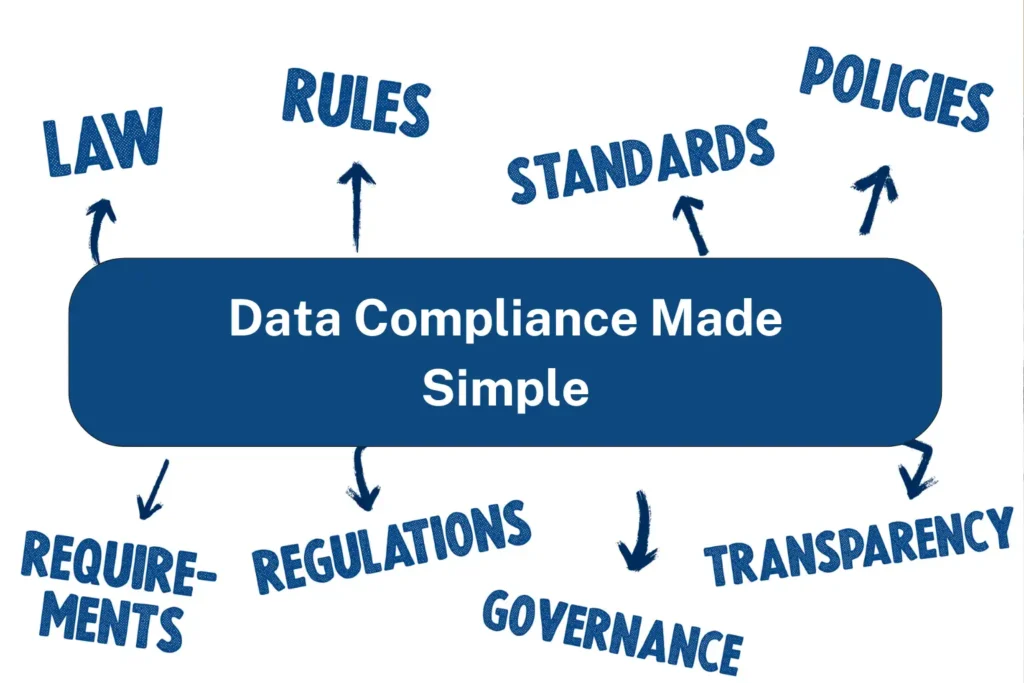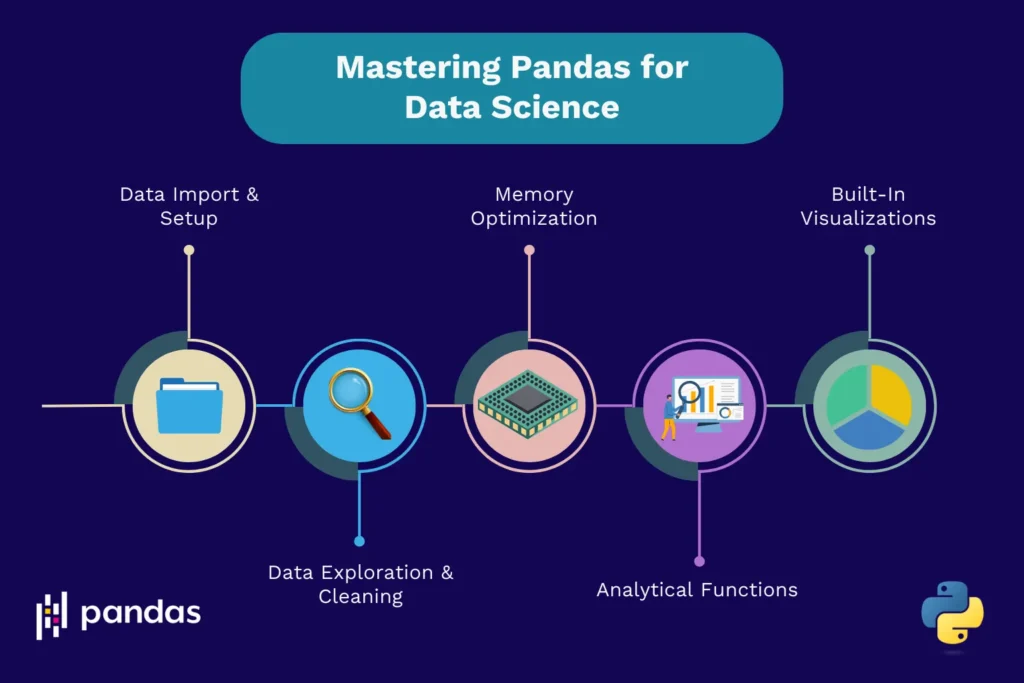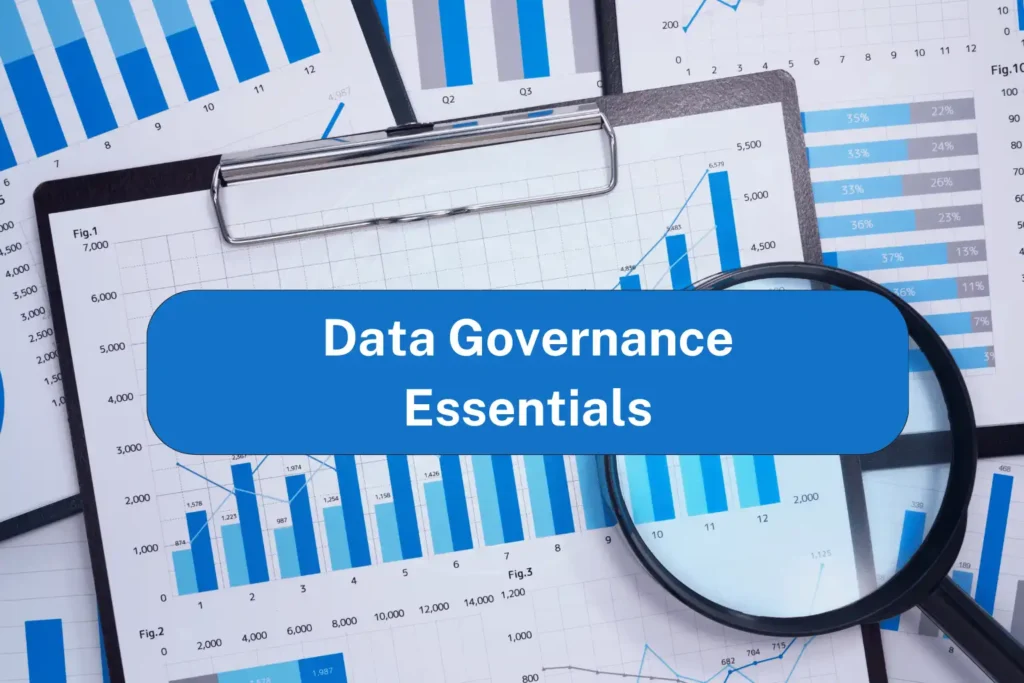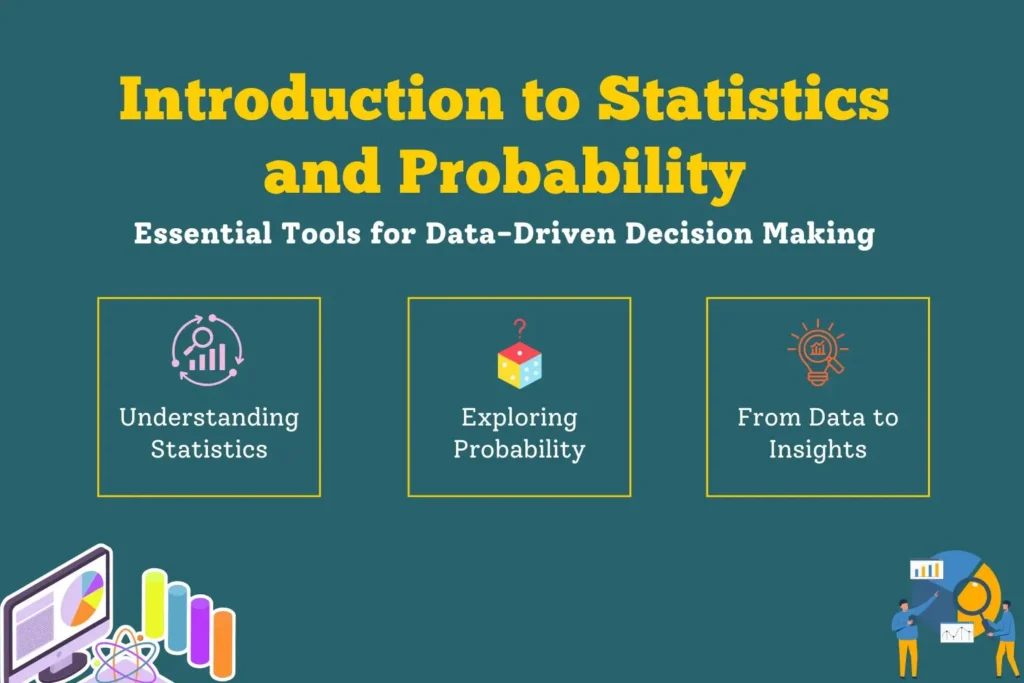
Discover what data compliance is, why it’s crucial, and how to implement it effectively
In a world driven by data, data compliance is no longer a back-office concern—it’s a fundamental part of building trust, maintaining legal standing, and securing long-term success. Whether your business leverages AI, machine learning, or advanced analytics, ensuring compliance with data regulations is crucial to protecting sensitive information and navigating a global web of laws.
This comprehensive guide explores what data compliance means, why it matters, the key regulations shaping the industry, and actionable strategies to implement compliance effectively across your organization.
What is Data Compliance?
Data compliance refers to the process of ensuring that an organization adheres to relevant laws and regulations governing the collection, storage, and use of data. It involves policies, processes, and technologies that ensure data is handled ethically, securely, and transparently.
For businesses using AI and machine learning models, compliance extends beyond regulatory adherence. It involves creating systems that respect user privacy and uphold ethical standards while minimizing risks associated with data breaches and misuse.
Why is Data Compliance Important?
Failing to comply with data regulations can result in:
- Hefty Fines: Non-compliance penalties can cost millions. For example, GDPR fines can reach €20 million or 4% of a company’s global turnover.
- Reputation Damage: A single breach can erode years of customer trust.
- Operational Risks: Unauthorized data usage or mismanagement can lead to costly legal disputes.
- Ethical Concerns: With the rise of AI ethics in public discourse, businesses must demonstrate responsibility in how they handle user data.
Beyond penalties, compliance fosters transparency and builds credibility, making it a competitive advantage for businesses looking to secure long-term customer loyalty.
Key Data Compliance Regulations Every Business Must Know
1. General Data Protection Regulation (GDPR)
The GDPR, enacted by the European Union, is one of the most comprehensive privacy laws in the world. It governs how businesses collect, process, and protect the personal data of EU citizens, even if the business is located outside Europe.
Core Requirements:
- Right to Access: Individuals can request a copy of their data.
- Right to Erasure: Users can ask businesses to delete their personal data.
- Data Breach Reporting: Companies must notify authorities within 72 hours of a breach.
- Data Portability: Users can transfer their data to another service provider.
Impact on AI and Machine Learning: AI models must align with GDPR principles, ensuring data used for training is lawful, unbiased, and anonymized where possible.
2. California Consumer Privacy Act (CCPA)
The CCPA gives California residents control over their personal data, focusing on transparency and accountability in how businesses collect and share information.
Key Rights Under CCPA:
- Right to Opt-Out: Users can refuse the sale of their data.
- Data Access and Deletion: Consumers can request access to and deletion of their personal data.
- Disclosure Requirements: Businesses must inform users about the categories of data collected and their intended use.
AI Implications: Businesses using data to train algorithms must provide clarity on how data is processed and ensure it aligns with CCPA transparency standards.
3. Health Insurance Portability and Accountability Act (HIPAA)
For companies operating in the healthcare sector, HIPAA sets strict requirements for protecting sensitive health information.
Core Principles:
- Data Encryption: Ensures secure storage and transfer of patient information.
- Access Control: Limits who can view sensitive health data.
- Audit Trails: Tracks who accessed data and when to ensure accountability.
AI in Healthcare: Models trained on medical data must comply with HIPAA, prioritizing data anonymization and secure access protocols.
4. Brazil’s General Data Protection Law (LGPD)
Brazil’s LGPD is similar to GDPR but has distinct features tailored to the region.
Key Features:
- Data Minimization: Only collect data that is strictly necessary.
- Data Subject Rights: Users can request access, correction, or deletion of their data.
- International Data Transfers: Businesses must ensure adequate protection when transferring data abroad.
Challenges in Data Compliance
Adhering to compliance requirements is complex, particularly for organizations dealing with AI and big data. Common challenges include:
- Global Regulation Overlap
Operating across borders means navigating multiple laws like GDPR, CCPA, and LGPD, which often have conflicting requirements. - Data Volume and Complexity
Businesses leveraging AI and machine learning deal with massive datasets that are often unstructured, making compliance audits challenging. - Limited Resources
Many small businesses lack the budget or expertise to fully implement compliance programs. - Employee Awareness
Without proper training, employees may unintentionally violate compliance policies, exposing the organization to risks.
For more insights on handling large datasets ethically, check out our article on data governance best practices.
How to Implement Data Compliance in Your Business
While achieving full compliance might seem daunting, a structured approach can make it manageable:
1. Conduct a Comprehensive Data Audit
Identify the data you collect, where it is stored, and how it is used. Pay special attention to data used for AI training and ensure it complies with relevant regulations.
2. Develop and Communicate Clear Privacy Policies
Draft policies that outline your commitment to data privacy, how you handle information, and users’ rights. Make these policies accessible on your website and train employees to follow them.
3. Leverage Advanced Data Security Tools
Implement measures such as:
- Encryption: Protect sensitive data at rest and in transit.
- Access Controls: Limit access to critical information based on roles.
- AI Model Validation: Ensure AI systems handle data ethically and securely.
4. Appoint a Data Protection Officer (DPO)
A DPO ensures your compliance efforts stay on track. They monitor adherence, address user concerns, and respond to potential breaches swiftly.
5. Educate and Empower Employees
Offer regular training on compliance regulations, security best practices, and data privacy to ensure company-wide adherence.
6. Regular Monitoring and Adaptation
Compliance is an ongoing process. Regularly review your data management practices to stay aligned with evolving laws.
Explore our detailed guide on building a compliance-first culture for more actionable tips.
AI, Machine Learning, and Compliance: What You Need to Know
As businesses increasingly use AI, compliance challenges multiply. Some key considerations include:
- Bias in Data: Ensure datasets are representative and do not reinforce biases.
- Data Retention: Limit the storage duration of sensitive information.
- Explainability: Build AI systems that offer transparent decision-making processes.
For an in-depth exploration, read our article on the intersection of AI ethics and compliance.
Final Thoughts
In today’s data-driven economy, data compliance is both a necessity and an opportunity. By embedding compliance into your business practices, you build trust, secure sensitive information, and align with global ethical standards.
Start today by conducting a data audit, strengthening security measures, and fostering a culture of responsibility across your organization. Businesses that prioritize compliance will not only avoid penalties but also unlock long-term value by responsibly harnessing the power of AI and machine learning.


